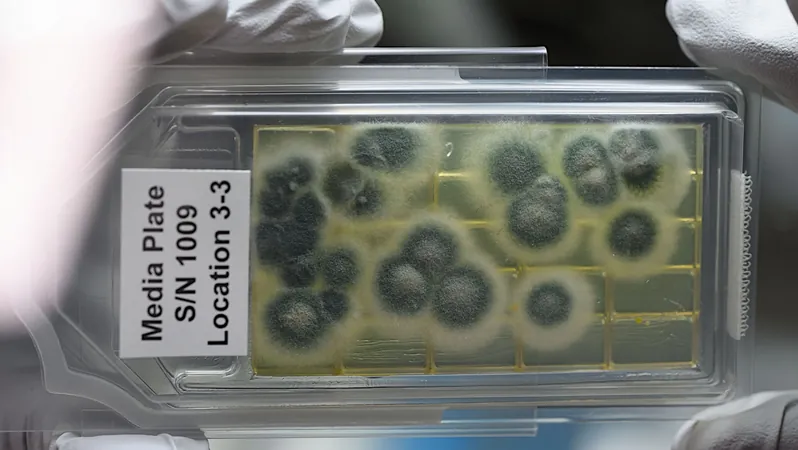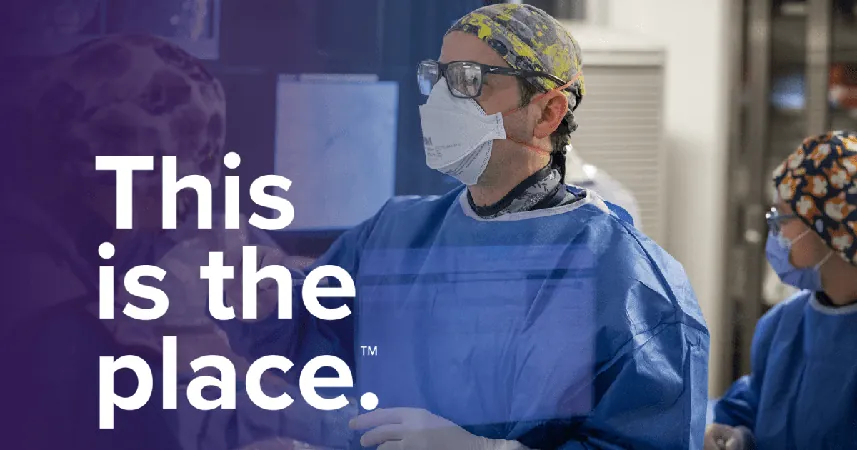
Exploring the Unseen: The GEARS Project and Its Quest Against Antibiotic Resistance in Space
2025-04-06
Author: Emily
Introduction
In an exciting leap forward for space exploration, the upcoming launch of SpaceX’s Dragon spacecraft will transport four groundbreaking Space Biology experiments to the International Space Station (ISS). Among these missions is the intriguing GEARS project, aimed at investigating antibiotic-resistant microbes in space.
The GEARS Project Overview
The GEARS (Genomic Enumeration of Antibiotic Resistance in Space) experiment intends to explore the ISS to identify the presence and genetic features of antibiotic-resistant bacteria. As researchers delve into the unique conditions of microgravity, they hope to reveal how these bacteria adapt and potentially evolve. This upcoming mission marks the third installment in a series of four GEARS sampling missions, making it a crucial part of our understanding of microbial life beyond Earth.
Impact on Human Health
One crucial aspect of this research is the impact of spaceflight on the human immune system, which is known to weaken during extended missions. The presence of antibiotic-resistant bacteria on the ISS poses a significant risk to astronauts’ health, increasing the likelihood of infections. By meticulously monitoring these organisms, researchers aim to understand not only their types and frequency but also their evolutionary mechanisms in the challenging environment of space. This knowledge is vital for devising strategies that can mitigate infection risks for crew members on future missions.
Advancements in Medical Technology
The research conducted during this mission relies on state-of-the-art on-orbit sequencing technology, which could pave the way for the development of rapid diagnostic tools for astronauts. This advancement in medical technology would be essential for future long-duration space missions, especially to Mars and beyond, where immediate medical intervention may not be readily available.
Funding and Research Team
The ambitious GEARS project is funded by a NASA Space Biology grant awarded to Dr. Christopher Carr from the Georgia Institute of Technology. His research, titled “Enterococci Evolution in Space: Environmental Adaptations, Antibiotic Resistance, and Clinical Implications,” investigates not just the microbes but their potential clinical impact on human health in space. He is joined by co-investigators Dr. Sarah Wallace and Dr. Aaron Burton from NASA’s Johnson Space Center, who bring their expertise to enrich this multifaceted examination.
Conclusion
As we stand on the brink of a new era in space exploration, understanding how life—especially harmful microbes—functions in extraterrestrial environments will be crucial. The findings from the GEARS project could reshape our approach to health and safety in space, ensuring that human space travel can continue without major biological setbacks. Stay tuned for groundbreaking discoveries that may just change the future of space health!









 Brasil (PT)
Brasil (PT)
 Canada (EN)
Canada (EN)
 Chile (ES)
Chile (ES)
 Česko (CS)
Česko (CS)
 대한민국 (KO)
대한민국 (KO)
 España (ES)
España (ES)
 France (FR)
France (FR)
 Hong Kong (EN)
Hong Kong (EN)
 Italia (IT)
Italia (IT)
 日本 (JA)
日本 (JA)
 Magyarország (HU)
Magyarország (HU)
 Norge (NO)
Norge (NO)
 Polska (PL)
Polska (PL)
 Schweiz (DE)
Schweiz (DE)
 Singapore (EN)
Singapore (EN)
 Sverige (SV)
Sverige (SV)
 Suomi (FI)
Suomi (FI)
 Türkiye (TR)
Türkiye (TR)
 الإمارات العربية المتحدة (AR)
الإمارات العربية المتحدة (AR)